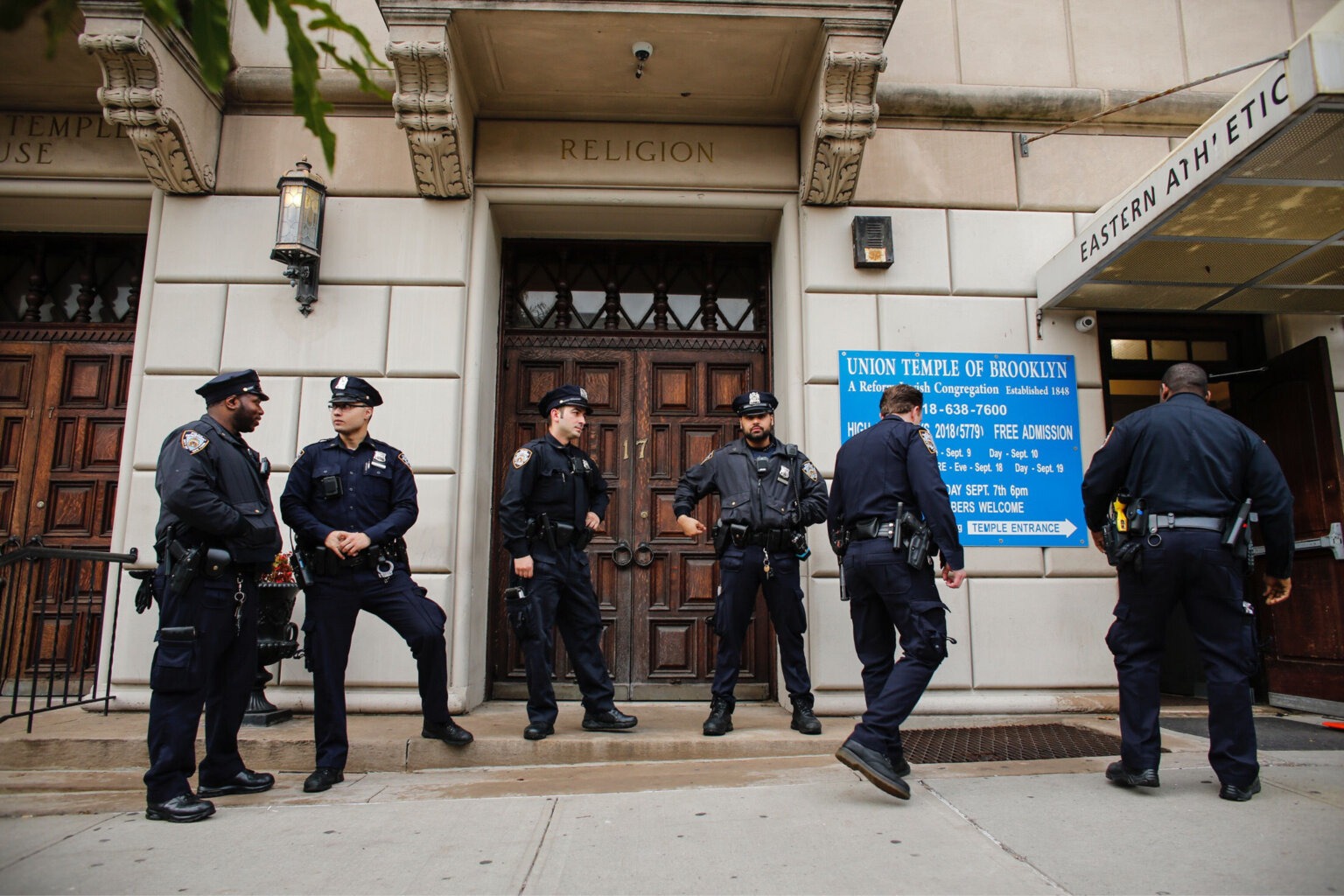Synagogue bomb threats continue despite arrest of a suspect
The ADL said it had identified three new threats at Jewish locations across North Carolina this week

New York City police officers guard the door of Brooklyn’s Union Temple in 2018. (Getty)
(JTA) – A Jewish center in Durham, North Carolina, evacuated its occupants after receiving a fake bomb threat on Tuesday, one week after the arrest of a suspect accused of directing a series of such threats at synagogues across the country.
Since the summer, dozens of Jewish institutions across America have been targeted with fake bomb threats, according to the Anti-Defamation League. The ADL said it had identified three new threats at Jewish locations across North Carolina this week, including Tuesday’s.
The suspect who was arrested last week, Eddie Manuel Nunez Santos, was a Peruvian national who made more than 150 threats, mostly by email, against synagogues and other buildings both Jewish and non-Jewish across five different states in September, the FBI said. The period when he sent the threats included Rosh Hashanah, which took place in mid-September. The bomb threats began, the FBI said, after Santos tried and failed to solicit child pornography; phone numbers that were sent along with the threats belonged to teenage girls who had rejected or cut off contact with him.
But Nunez Santos’ activity did not account for all of the hoax threats Jewish institutions have received since July, according to ADL reports. And the incident at the Jewish Community Campus in Durham, which led to the evacuation of a Reform synagogue, a Jewish day school and a JCC all located on the campus, demonstrated that such threats have continued even with that suspect in custody.
According to the Secure Community Network, a security firm monitoring Jewish institutions that partners with the ADL, there has been a noticeable downturn in such threats since the High Holidays and Nunez Santos’ arrest. But SCN also expects more threats to be made. Jewish institutions dealt with previous waves of fake threats in 2017 and 2020.
“While a certain number of incidents have been attributed to that arrested individual, the uptick in swatting incidents and bomb threats is not just a trend from recent months, but recent years – and they are continuing,” SCN director and CEO Michael Masters told JTA in a statement. “One arrest will not – nor has not – stopped what has emerged as a tactic for fear and disruption.”
Masters said SCN was “communicating with federal law enforcement and intelligence partners on next steps” to address the epidemic of false threats to Jewish institutions, which attract a response by law enforcement.
“Since at least as early as 2017, the Jewish community has been targeted with waves of bomb threats, often facilitated by advanced communications technology,” Todd Gutnick, an ADL spokesperson, told JTA. “Unfortunately, this trend is likely to continue.”
This article originally appeared on JTA.org.





















